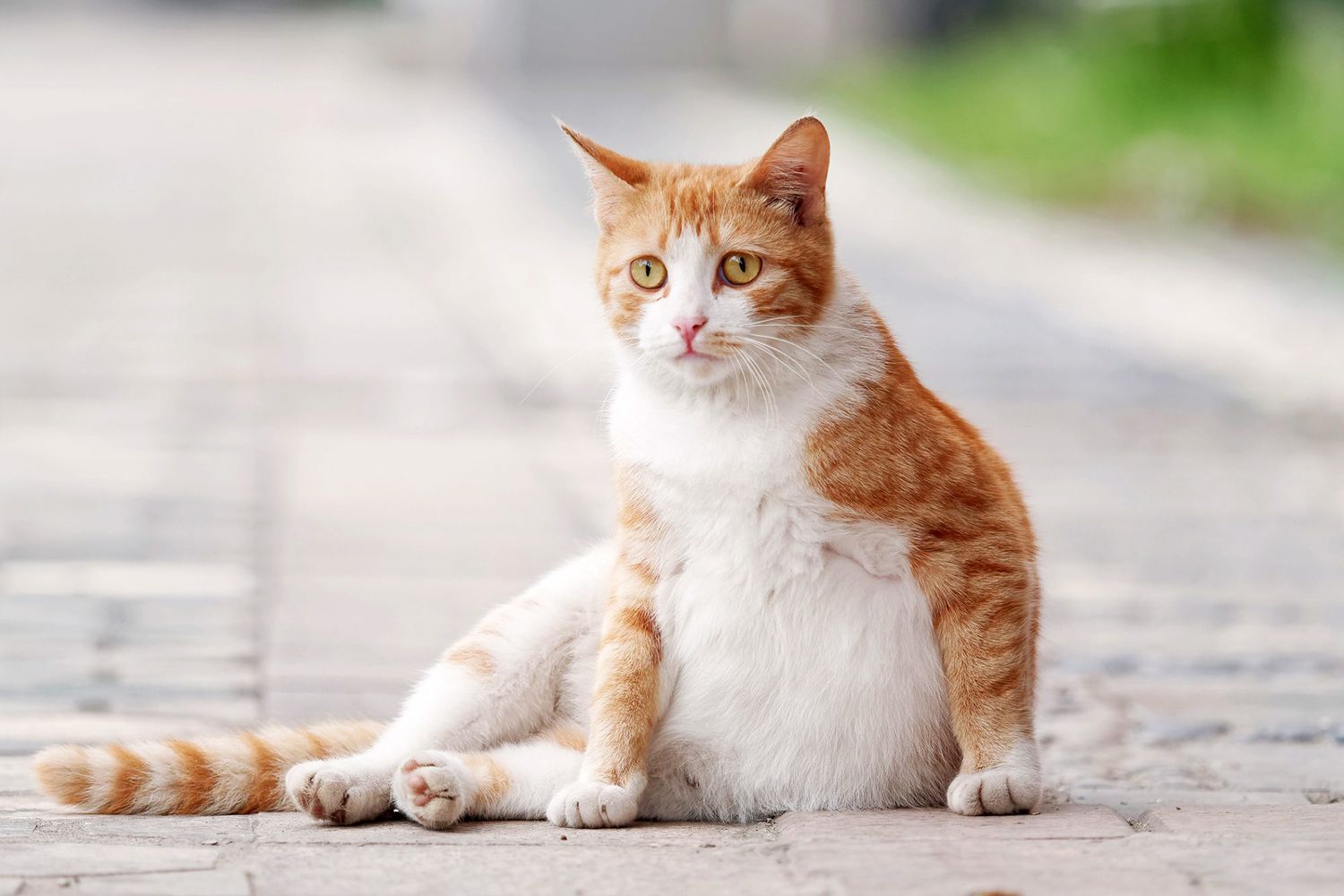How Long Do Cats Stay Pregnant
Feline pregnancy is a fascinating and crucial aspect of cat care that every responsible pet owner should understand. Knowing the duration of a cat’s pregnancy, also referred to as gestation, plays a pivotal role in ensuring the health and well-being of both the mother cat (queen) and her future kittens. In this comprehensive guide, we’ll explore the intricacies of feline pregnancy duration, factors that affect it, and provide valuable insights for taking care of your pregnant cat.
Feline Reproduction and Pregnancy Basics
Cats undergo a unique reproductive cycle comprising distinct stages: mating, gestation, and birth. The process begins when a male cat (tom) mates with a female cat (queen), leading to the fertilization of the queen’s eggs. Following successful mating, the queen enters the gestation period, during which her body nurtures the developing kittens. Finally, the birth of the kittens, also known as labor, marks the culmination of the feline reproductive journey.

Signs and Symptoms of Cat Pregnancy
Detecting signs of pregnancy in cats is a crucial skill for providing appropriate care during this important phase. Just as with humans, pregnant cats often exhibit noticeable changes in behavior, appetite, and physical appearance. Paying close attention to these signs can offer valuable insights into your cat’s reproductive status and enable you to provide the necessary care.
Early indicators of cat pregnancy may include:
Behavioral Changes:
Pregnant cats may display shifts in behavior, becoming more affectionate or seeking solitude.
Increased Appetite:
A heightened appetite is common due to the increased nutritional requirements.
Weight Gain:
As pregnancy progresses, a slight weight gain is typically observed.
Physical Changes:
Swollen nipples and a growing abdomen are prominent physical signs.
Average Cat Pregnancy Length
One of the most common questions among cat owners is, “How long do cats stay pregnant?” On average, the gestation period for cats typically spans around 63 to 65 days, starting from the successful mating date. However, it’s essential to note that this is a general guideline, and individual pregnancies may deviate from this range. Various factors, including breed, age, and overall health, can influence the exact duration of a cat’s pregnancy.
While the 63 to 65-day timeframe serves as a standard estimate, it’s crucial to stay attuned to your cat’s behavior and any changes. If you observe any potential signs of pregnancy or have concerns about the duration, consulting a veterinarian is highly recommended. Professional guidance tailored to your cat’s specific circumstances can provide clarity and peace of mind.
Factors Affecting Cat Pregnancy Duration
Several key elements contribute to how long a cat stays pregnant:
Breed:
Different cat breeds may experience variations in pregnancy length. Certain breeds might exhibit slightly shorter or longer gestation periods.
Age:
A cat’s age plays a pivotal role in pregnancy duration. Younger cats may have briefer pregnancies, while older cats might experience longer gestation periods.
Health:
The overall health of the cat significantly affects pregnancy length. Cats in optimal health tend to adhere more closely to the average timeline.
Litter Size:
The number of kittens in a litter can also impact pregnancy duration. Cats carrying larger litters might experience slightly shorter pregnancies.
Environmental Factors:
The environment in which the cat lives can subtly influence pregnancy. Creating a comfortable and stress-free atmosphere contributes to a smoother pregnancy experience.
Individual Variability:
Just as human pregnancies can vary, individual differences among cats can lead to deviations from the average pregnancy duration.
Preparing for a Cat’s Pregnancy
Creating a nurturing and supportive environment is essential for the well-being of your pregnant cat. As her pregnancy progresses, providing proper care can contribute to a healthy and stress-free experience for both the mother cat and her future kittens.
Diet and Nutrition:
Maintaining a balanced and nutritious diet is crucial during pregnancy. Consult your veterinarian to ensure your cat is receiving the appropriate nutrients for her changing needs. High-quality cat food formulated for pregnant or nursing cats can help provide essential vitamins and minerals.
Hydration:
Ensure your pregnant cat has continuous access to fresh and clean water. Staying hydrated is vital for her overall health and the development of the kittens.
Creating a Comfortable Space:
Set up a quiet and comfortable space where your pregnant cat can feel safe. Provide a cozy bed or nesting box where she can rest and eventually give birth.
Monitoring Pregnancy Progress
Regular veterinary check-ups play a pivotal role in monitoring your cat’s pregnancy progress and addressing any potential concerns. Your veterinarian can conduct ultrasounds and physical examinations to assess the health of both the mother cat and her developing kittens.
Ultrasound:
Ultrasound imaging is a valuable tool for tracking the growth and well-being of the kittens. This non-invasive procedure allows you to visualize the developing fetuses and detect any potential issues.
Physical Examinations:
Routine check-ups enable your veterinarian to assess your cat’s overall health, monitor weight gain, and address any changes in behavior. Regular examinations provide valuable insights into the pregnancy’s progress.
Recognizing Labor and Birth Signs
As your cat’s pregnancy nears its conclusion, understanding the signs of labor is crucial for providing the appropriate support and care during the birthing process.
Nesting Behavior:
A few days before labor, your cat may exhibit nesting behavior, seeking out a quiet and secluded spot to give birth.
Restlessness:
Restlessness and frequent changes in position are common signs that labor is imminent.
Licking and Grooming:
Increased grooming of the genital area is a natural behavior cats often display before giving birth.
Decreased Appetite:
A reduced appetite is normal as labor approaches. Keep an eye on your cat’s food intake, but don’t be alarmed if she eats less than usual.
Postpartum Care for Mother and Kittens
After the kittens are born, proper postpartum care is essential to ensure the health and well-being of both the mother cat and her newborns.
Mother’s Care:
Allow the mother cat to bond with her kittens and nurse them. Provide a warm and quiet space where she can care for her young ones.
Kitten Care:
Ensure the kittens are nursing and gaining weight. If you notice any signs of distress or if a kitten isn’t nursing, consult your veterinarian.
Regular Check-ups:
Schedule postpartum check-ups for the mother cat and her kittens to monitor their health and address any potential issues.
Frequently Asked Questions About Cat Pregnancy
1. Q: How long is a cat pregnant?
A: The average cat pregnancy, or gestation, lasts around 63 to 65 days.
2. Q: What are the signs of a pregnant cat?
A: Signs include changes in behavior, increased appetite, weight gain, and swollen nipples.
3. Q: Can cats have a false pregnancy?
A: Yes, some cats may show pregnancy symptoms without actually being pregnant.
4. Q: Is it safe to spay a pregnant cat?
A: Spaying is generally safer before pregnancy; consult a vet for guidance.
5. Q: How can I tell if my cat is in labor?
A: Look for nesting behavior, restlessness, and increased grooming of the genital area.
6. Q: Should I provide a nesting box for my pregnant cat?
A: Yes, setting up a quiet, comfortable nesting area is beneficial.
7. Q: Can I touch the kittens after birth?
A: Allow the mother cat to care for them initially; limit handling to avoid stress.
8. Q: What if my pregnant cat loses her appetite?
A: A slight decrease is normal before labor; consult a vet if concerned.
9. Q: How often should I take my pregnant cat to the vet?
A: Regular check-ups help monitor health and ensure a smooth pregnancy.
10. Q: When can a pregnant cat be spayed after giving birth?
A: It’s advisable to wait until after the kittens are weaned before spaying.
conclusion
how long cats stay pregnant is a vital aspect of responsible pet ownership. By recognizing signs of pregnancy, preparing a comfortable environment, and seeking professional guidance, you can ensure a smooth and healthy pregnancy journey for your beloved cat. Every cat is unique, and while this guide provides valuable insights, individual circumstances may vary. If you have specific concerns or questions about your cat’s pregnancy, don’t hesitate to consult a veterinarian for personalized advice and support.




